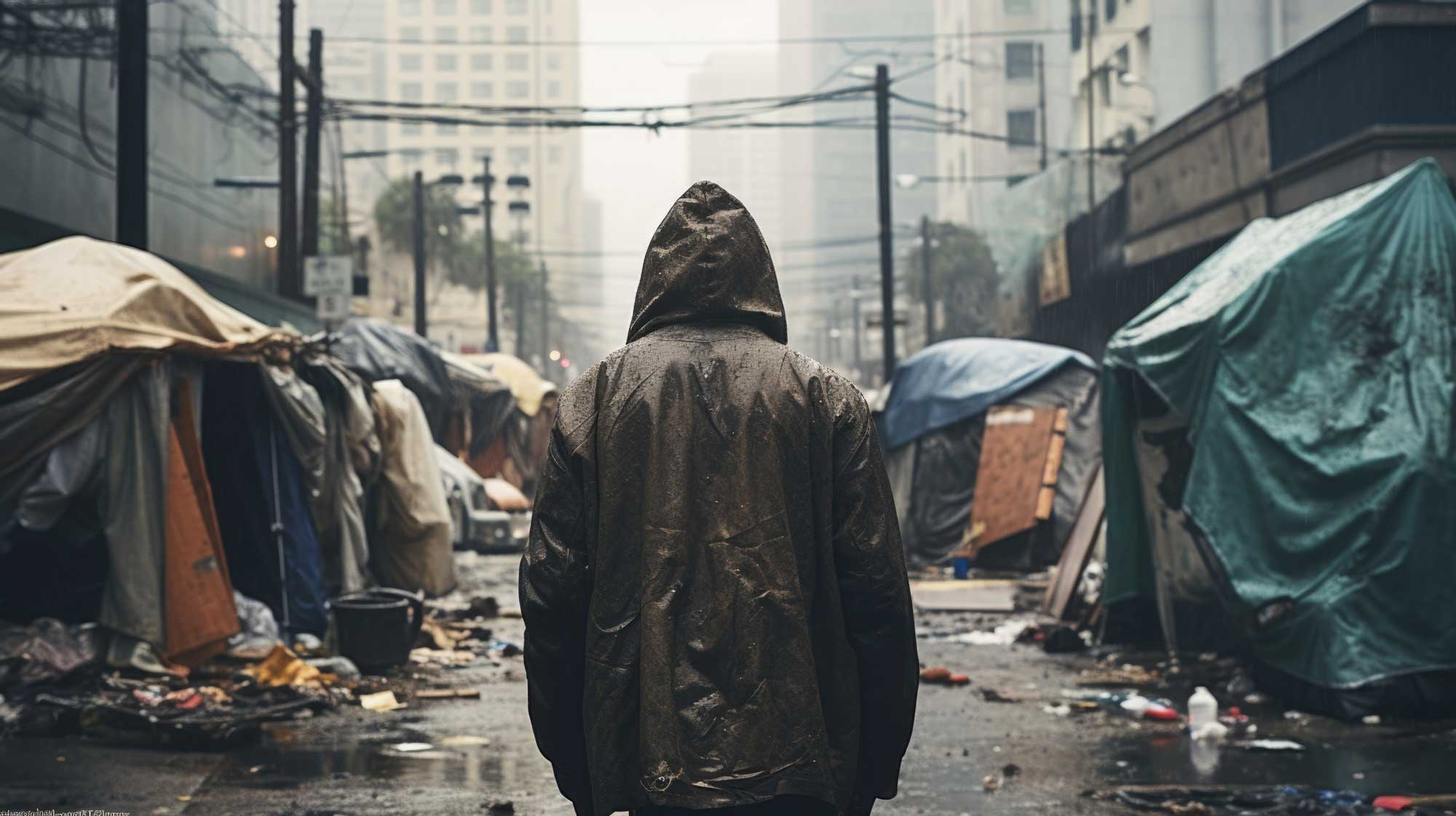Homelessness
The homelessness crisis has become a racket. Government-funded NGOs and activist groups exploit taxpayer dollars to push failed, ideological policies that trap people in addiction and despair. It’s time to end the corruption, hold these groups accountable, and demand real outcomes—safety, dignity, and self-sufficiency.
A New Way on Homelessness
Politicized policies have kept homeless individuals trapped in homelessness rather than getting them back to self-sufficiency. That’s why, despite increased spending, homelessness has continued to rise over the past two decades. It’s time for system-wide accountability and real solutions that truly serve the homeless and wider communities.
The Cicero Institute offers the strongest reform package to state leaders who want to fix bad incentives, hold service agencies accountable for results, and get homeless individuals the help they need.
States should ban unauthorized street camping
More people than ever are experiencing unsheltered homelessness in America, and this population faces many serious challenges including addiction and severe mental health issues. Predictably, crime in and around street encampments is disproportionately high. Despite the problems associated with allowing homeless encampments to fester, many cities and states have refused to take serious action. To maintain order in our cities, we must hold all citizens, including the homeless, accountable to the rule of law. Removing homeless individuals from unsanctioned camps and placing them in shelters offers them the services they need while reducing crime.
States should direct funds away from expensive and ineffective “Housing First” programs
Since the mid-2000s, the Department of Housing and Urban Development, as well as the vast majority of homeless services agencies and NGOs, have endorsed the “Housing First” model of providing free housing to the homeless.
It requires between eight and 20 units of “Permanent Supportive Housing” to get one chronically homeless person off the street. This is untenable as a solution. Instead, states should pursue minimally viable shelter options and sanctioned encampments with services.
Permanent supportive housing doesn’t address homelessness – it creates demand for more homelessness and supports cronyism.
States and cities should pay non-profits for results, not just services
Instead of paying non-profits based on the amount of services provided, some or all of the contract should be contingent on the performance of the provider. If people aren’t being helped, their services should not be funded.
Performance-based contracts should be the standard in public contracting, and especially for homeless services. Instead of paying non-profits based on the amount of services provided, some or all of the contract should be contingent on the performance of the provider.
States should amend civil commitment laws to make it easier to help those who cannot help themselves—and keep them out of prison
One of the largest studies of homelessness found that more than half of unsheltered homeless individuals reported serious mental health issues that contributed to their loss of housing, including depression, anxiety, hallucinations, and trouble with basic mental functions like understanding and memory. Despite this, few receive any treatment—only 14 percent received outpatient treatment or counseling, and 20 percent were prescribed medication for mental health issues.
Policymakers should invest in building a continuum of treatment capacity in state mental health systems. Involuntary civil commitment laws provide an essential pathway to treatment for the most vulnerable people in our communities.
Check out our documentary Homelessness: The Reality and the Solution

research
Sex Offenders: An Overlooked but Significant Subpopulation of the Homeless

Stay Informed
Sign up to receive updates about our fight for policies at the state level that restore liberty through transparency and accountability in American governance.